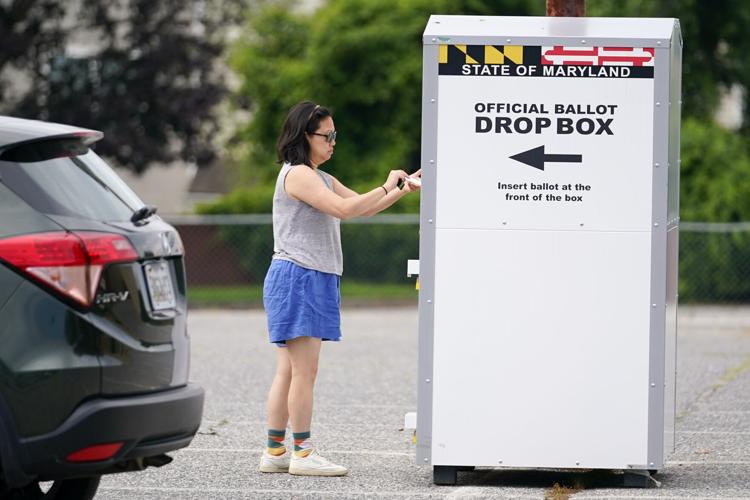PHOENIX — The state Court of Appeals has tossed out a claim by the ÃÛÁÄÖ±²¥ Republican Party and its allies that could have thrown a wrench into voting by mail and having those votes be tallied.
In a unanimous ruling, the three-judge panel declined to rule on claims that Democratic Secretary of State Adrian Fontes acted illegally when he concluded that signatures on early ballot envelopes can be verified by comparing them to any other signatures on file of those voters.
Instead, the judges said the plaintiffs lack standing to sue.
They said the law gives Fontes “at least some discretion on the rules he enacts,’’ making those rules exempt from the kind of challenge the Republican Party brought.
The ruling, unless overturned, leaves in place the authority of county election officials to use multiple sources to verify the signatures on ballot envelopes.
People are also reading…
A ruling in favor of the GOP would have meant more early ballots would be set aside for verification, especially in circumstances where the signatures changed over the years, or decades, since people first signed up to vote. That verification process involves reaching out to voters, by phone or mail, to “cure’’ the ballots by asking them if they had, in fact, voted by mail.
“It would be very burdensome on the curing process,’’ said Aaron Thacker, a spokesman for the Secretary of State’s Office. “It would increase the demand to cure signatures, which would become a strain on the timeline.’’
That timeline, under state law, is five days after the election. If voters cannot be reached or don’t verify their signatures, their ballots would never be counted.
There was no immediate response from attorney Kory Langhofer, who represents the challengers.
Fontes cheered the ruling, calling the lawsuit “nothing more than a red herring.’’
“We know that signatures naturally change over time due to age, health, or other personal circumstances,’’ he said. “Using the most current signature on file to verify mail-in ballots is not only common sense, it’s essential to maintaining election integrity.’’

Fontes
Trump wants to end mail-in voting
The ruling comes as Republicans, led by President Donald Trump, are trying to kill early voting nationwide.
“I am going to lead a movement to get rid of mail-in ballots,’’ the president wrote earlier this month on his social media platform. Trump also said he would sign an executive order to that effect ahead of the 2026 elections.
But that is virtually certain to get a legal fight from ÃÛÁÄÖ±²¥ and other states that contend how elections are conducted is a state decision. Fontes said if Trump were to try to override state law, he would “tell him to pound sand.’’
ÃÛÁÄÖ±²¥ has long allowed early voting. But prior to 1991, that privilege was available only to people who provided proof they needed it, for reasons such as being away from their voting precinct on Election Day or having a physical disability.
That year, the Republican-controlled Legislature made ÃÛÁÄÖ±²¥ among the first states in the nation to adopt no-excuse early voting. It has proven extremely popular, reaching close to 90% usage in 2020.
The state GOP sued in 2022 to have the practice declared unconstitutional. But that lawsuit was thrown out by the ÃÛÁÄÖ±²¥ Supreme Court.
This latest action focuses on a narrower issue: How to verify signatures.
In filing the 2023 lawsuit, Langhofer argued that election officials have only one option: compare what is on the ballot envelope with a person’s “registration record.’’
“It is the only means by which the county recorder can verify that a person casting an early ballot by mail is, in fact, a duly qualified elector,’’ the lawsuit said.
But Fontes argued that the wording of the law allows election officials to use any signatures available to them. Those include signatures on requests for early ballots, on voter rosters, or on prior early ballot envelopes.
He put that interpretation into the Elections Procedures Manual, which he is required to compile to help election officials interpret ÃÛÁÄÖ±²¥ law.
Langhofer called it “unreasonably permissive criteria.’’
He represents not only the state GOP but also the ÃÛÁÄÖ±²¥ Free Enterprise Club, which tends to align itself with GOP interests and is currently engaged in other legal battles, including trying to void a 2022 voter-approved law requiring the true source of political spending to be made public.
Langhofer also represents the group Restoring Integrity and Trust in Elections. Reuters says RITE was formed in 2022 by former U.S. Attorney General William Barr, Karl Rove, who was a top adviser to former President George W. Bush, and casino billionaire Steve Wynn.
The challengers won an early round in the lawsuit when Yavapai County Superior Court Judge John Napper ruled in 2023 that state law is “clear and unambiguous’’ that election officials must compare the signatures on the envelopes with the voter’s actual registration record. That consists only of the document signed when a person first registered, along with subsequent changes for reasons such as altering party affiliation, he said.
But Napper later overruled his own decision, saying it appeared state lawmakers had given Fontes sufficient legal latitude to conclude the “registration record’’ includes signatures on anything else in county records.
The law gives Fontes discretion, court says
The Court of Appeals, in the new ruling, didn’t even try to go that far.
Appellate Judge Jeffrey Sklar, writing for himself and his colleagues, said the challengers sought a court order directing the secretary of state to rewrite the Elections Procedures Manual to tell local officials they could use only the original registration records for signature comparison.
The problem with that, Sklar said, is that Fontes has “at least some discretion’’ in crafting the manual. And that makes sense, the judge said.
“Otherwise, there would be no need for an EPM,’’ he wrote. “It would simply reiterate the statutory scheme.’’
That discretion makes Fontes immune from having courts overrule his decisions, Sklar said.
Fontes chided the challengers for filing the lawsuit in the first place.
“Efforts to undermine the process aren’t about fixing anything,’’ he said. “They’re about sabotaging a system that has proven to work.’’

Howard Fischer is a veteran journalist who has been reporting since 1970 and covering state politics and the Legislature since 1982. Follow him on X, and Threads at @azcapmedia or email azcapmedia@gmail.com.











